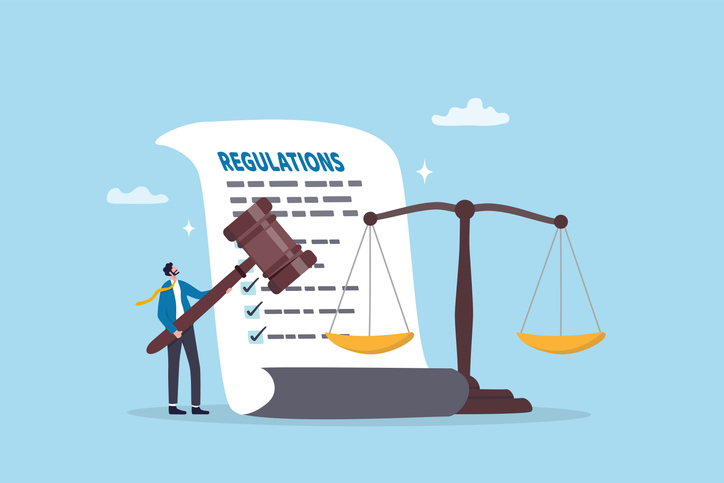After almost a year of lockdowns and restrictions, coronavirus business support is still very much needed by firms across the UK.
We’ve gathered a list of government help, past and present, to let you know what is available to you.
Active
These funding and support opportunities are currently open. You can find further information within the links in the headings.
Deadlines are also outlined below.
Additional Restrictions Grant
- Available for businesses that are not covered by other grant schemes or where additional funding is needed.
Deadline: Ongoing
Bounce Back Loan Scheme
- Loans of between £2,000 and £50,000, up to 25 per cent of turnover
- The government guarantees 100 per cent of the loan with no fees or interest to pay for the first 12 months. After 12 months the interest rate will be 2.5 per cent a year
- Companies can now apply for a top-up in cases where they initially did not borrow the full amount available
Deadline: March 31 2021
> See also: Microbusiness £50,000 Bounce Back Loans – how they work
Business Rates Holiday
- Businesses in the retail, hospitality and leisure sectors in England will not have to pay business rates for the 2020-2021 tax year.
Deadline: April 6 2021
Commercial eviction ban
- Landlords have been banned from turfing businesses out until the end of March 2021 if they’ve been struggling to pay rent
Deadline: March 31 2021
> See also: Landlords blocked from evicting small businesses for another three months
Coronavirus Business Interruption Loan Scheme (CBILS)
- Offers access to loans of up to £5m
- 80 per cent of the loan is guaranteed by the government.
Government pays interest and any fees for the first 12 months - Available for businesses with annual turnover of up to £45m
Deadline: March 31 2021
> See also: How do I apply for a Coronavirus Business Interruption Loan?
Coronavirus Job Retention Scheme
- 80 per cent of employees’ monthly salary covered for hours not worked, up to a maximum of £2,500
- Employees do not have to be furloughed full-time to qualify. Employers will have flexibility to use the scheme for employees for any amount of time or shift pattern, furloughing employees on either a full-time or part-time basis
- No employer contribution for hours not worked, employers only have to cover National Insurance and employer pension contributions
Deadline: April 30 2021
Corporation tax filing extension
- You can apply for a three-month corporation tax extension to the deadline of filing your accounts, so long as your deadline falls between June 27 2020 to April 5 2021 (inclusive)
Deadline: You must apply for the extension before your normal filing deadline
Kickstart Scheme grant
- Provides funding to create new job placements for 16 to 24-year-olds on Universal Credit who are at risk of long-term unemployment
- The funding covers 100 per cent of the National Minimum Wage (or the National Living Wage depending on the age of the participant) for 25 hours per week for a total of six months
- Also covers National Insurance contributions
- The threshold of minimum 30 job placements will be removed from February 3 2021
- Employers can spread the start date of the job placements up until the end of December 2021
Deadline: Not specified
VAT deferral for the self-employed
- If you’ve deferred your VAT payments, then you’ll need to opt in to spread your costs over the 2021/22 tax year. Details are yet to be announced
- However, if you can make your VAT payment in March this year then you should
Deadline: Not specified
Self-employed Income Support Scheme
- The third round of SEISS is coming to a close and the fourth is yet to be announced. It will cover February-April 2021
- The November to January grant was calculated at 80 per cent of three months’ average monthly trading profits, paid out in a single instalment and capped at £7,500
Deadline: Third round grant – January 29 2021
Fourth round yet to be announced
Statutory Sick Pay refund
- Companies with fewer than 250 members of staff can apply for a full refund for staff who take statutory sick leave due to Covid-19
- You must have had PAYE set up in your business by February 28 2020
Deadline: Ongoing
> See also: Coronavirus government Statutory Sick Pay Rebate Scheme – how to apply
Time to Pay coronavirus helpline
- HMRC’s Time to Pay hotline is available for business owners that are having trouble paying their outstanding tax bills due to Covid-19
- You can call the helpline on 0800 024 1222
Deadline: Ongoing
Top-up grant for retail, hospitality and leisure
- Additional funding has been allocated for the struggling retail, hospitality and leisure industries as a one-off top-up grant
- As before, the grant is available to rateable businesses:
– Small businesses with a rateable value of £15,000 and under will receive £4,000
– Medium businesses with a rateable value of between £15,000 and £51,000 will get £6,000 - Apply through your local council’s website
- £594m was also made available to councils to distribute at their discretion
Deadline: Not specified
Government help for Scotland, Wales and Northern Ireland
Scotland
Temporary Closure grant
- If your business needs to close, you could be entitled to a Temporary Closure grant every four weeks, of one of the following:
– £2,000 if your business premises has a rateable value of up to and including £51,000
– £3,000 if your business premises has a rateable value of £51,001 or above - An upper limit of £15,000 in total in any four-week period will apply to any eligible business operating multiple premises
- From January 1 2021 there will no longer be an upper limit of £15,000 for any eligible business operating multiple premises.
Deadline: Not specified
Sector-specific funds are available through the Scottish government website
Wales
Restrictions Business Fund Top-up
The Restrictions Business Fund Non-Domestic Rates (NDR) and Discretionary based grants for non-essential retail, hospitality, leisure and tourism (NERHLT) sectors has been extended to give a one-off top-up payment to cover the period between the January 25 and the end of March 2021 for businesses affected by national restrictions.
Businesses eligible for the Extended Restrictions Business Fund will receive the following top up:
- NERHLT businesses who get Small Business Rate Relief (SBRR) and with a rateable value of £12,000 or less will be eligible for an additional £3,000 payment. Supply chain businesses qualifying for SBRR will also be eligible for this support if they have greater than 40 per cent reduction in turnover during the restriction period
- NERHLT businesses with a rateable value of between £12,001 and £51,000 will also be eligible for a £5,000 payment if impacted by the restrictions. Supply chain businesses in the same rateable value bracket will also be eligible for this support if they have greater than 40 per cent reduction in turnover during the restriction period.
- NERHLT businesses with a rateable value of between £51,001 and £500,000 will also be eligible for a £5,000 payment if impacted by the restrictions. Supply chain businesses in the same rateable value bracket will also be eligible for this support if they have greater than 40 per cent reduction in turnover during the restriction period
Deadline: Not specified
Local Discretionary Grant
- To support businesses who are not registered on the NDR register and with a turnover of under £50,000, a further £20m phase of the Local Discretionary Fund has also been approved and will provide a £2,000 grant via a second round application and payment
- Businesses will need to submit an application to their local authority to get the fund
Deadline: Applications are dealt with on a first come first served basis.
Access to other specialist fund are available through the Welsh government website.
Northern Ireland
Localised Restrictions Support Scheme
To access the Localised Restrictions Support Scheme, the business must operate from a property within Northern Ireland and fall into at least one of the following categories:
- It has been registered with, or is in the process of registering with, their local council environmental health department as a business operating in one of the following categories: cafe, restaurant, hotel, guesthouse (including registered bed & breakfast) or pub
- It operates as a campsite or caravan park for touring caravans, cinema, a museum, a gallery, a bingo hall, a funfair, an indoor amusement arcade, an indoor visitor attraction, a trampoline park, an inflatable park, an escape room, a bowling alley, or an ice rink; or close contact services that operate from commercial premises (as detailed in the Health Protection Regulations) such as hairdressers and barbers, beauty salons, day spas, nail bars and tattoo parlours
- It is a business which has been required to close or has had business activities at their premises directly curtailed by the Health Protection Regulations
- The business must also have been open to the public and trading at the start of the restriction period set by the Health Protection Restrictions (unless the applicant business is a wet pub which serves drink only)
Deadline: Not specified
Covid Restrictions Business Support Scheme
The Covid Restrictions Business Support Scheme will support businesses who meet the following criteria:
The business is:
- Restricted within the Health Protection (Coronavirus, Restrictions) (No.2) Regulations (Northern Ireland) 2020 but is not eligible for the Localised Restrictions Support Scheme (LRSS)
Or the business meets all of the following:
- Is within the supply chain of businesses restricted by the Regulations and as a result has been significantly affected
- Is operating in Northern Ireland and was trading immediately prior to October 16 2020
- Is not included in the scope of funding already allocated to Executive Departments to respond to Covid restrictions
Deadline: Not specified
Newly Self-Employed Support Scheme
The Newly Self-Employed Support Scheme (NSESS) will offer a one-off taxable grant of £3,500 to newly self-employed individuals (sole traders and those in partnerships) that meet the eligibility criteria.
Deadline: 6pm on Friday 5 February 2021.
Inactive
The funds below are no longer active. They were either temporary or, as may be the case of the Job Support Scheme, could return in a different form.
Future Fund
Convertible loans between £125,000 and £5m offered to innovative companies who were facing financing difficulties.
Job Support Scheme
The Job Support Scheme was originally planned to start in November 2020 but has been postponed due to extended lockdowns and tier restrictions.
Its purpose was to replace the furlough scheme which was extended to the end of April 2021. The aim was a six-month long scheme to protect ‘viable’ jobs in businesses that had lower demand because of the pandemic.
The idea was that employers paid staff for hours worked and the hours not worked were split between the employer, the government and the employee wage reduction.
Local Authority Discretionary Grants Fund
Extra money was sent to local councils in England to distribute to businesses who weren’t eligible for the rateable value grants. This was decided by councils and the fund was only available for a limited time.
Local Restrictions Support Grant (open and closed businesses)
Like the rest of the UK, businesses in England were able to access extra funding when they were forced to close due to restrictions. The grant is aimed at rateable businesses, but those that aren’t may still have received funding at the council’s discretion.
There was a similar scheme for businesses that stayed open but were affected by the restrictions.
Also applies to:
ERF Restrictions Business Fund (Wales)
ERF Restrictions Discretionary Grants (Wales)
The Covid-19 Restrictions Fund (Scotland)
Small Business Grant Fund
This was the first grant announced by the government in the March 2020 lockdown. Businesses around the UK who were based in rateable properties were entitled to a £10,000 grant. This grant is closed for new applications.





